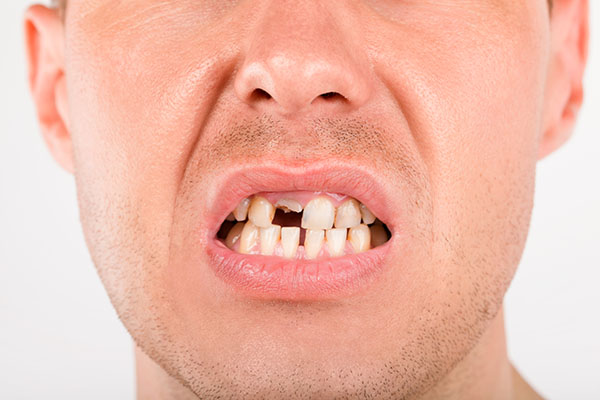Veneers Versus Crowns

If you need a dental restoration, you might be torn between getting a dental veneer or a dental crown. Both options are available from your general/family dentist. These restoration options are used to treat different issues. Compare crowns and veneers to see which is right for you. Then talk to your dentist about restoring your smile.
Dental veneer versus dental crown
If tooth-colored materials are used, dental veneers and crowns look the same when in the mouth. Both can be fabricated to match the existing teeth. While they look the same, the two are different. Learn more about crowns and veneers.
Purpose
When comparing a dental veneer and crown, it is important to look at the purpose of both. Dental veneers are used to fix minor cosmetic issues. Veneers cover up imperfections such as discolorations, chips and cracks. Veneers can also hide gaps in between the teeth. Veneers can also hide alignment problems with the teeth.
Dental crowns can be cosmetic but are usually used to restore the teeth. Dental crowns are used to strengthen a tooth that has been severely damaged by cracks, decay or infection in the root canal. Dentists recommend this procedure when it is the only way to save the tooth. Those who decide against a crown often must get a tooth extraction.
Procedure
The procedure is different for placing dental veneers and crowns. For veneers, the dentist removes a small amount of enamel from the front of the tooth and takes an impression. The impression is sent to a dental laboratory to fabricate the veneers. The dentist places temporary veneers on the teeth. When the veneers come back, the dentist bonds them to the front of the teeth with cement. This minimally invasive procedure typically does not require anesthesia.
For a dental crown, the dentist also prepares the tooth and takes an impression. However, the dentist must remove up to 75 percent of the natural tooth structure to prepare for the crown. The patient is fitted with a temporary crown. Then the patient comes back to get the new crown cemented in place. Crown placement is more invasive and requires local anesthesia.
Longevity of crowns and veneers
Dental veneers and crowns are durable but not permanent. Porcelain veneers typically last for 10-15 years. Dental crowns usually remain for 5-15 years. Patients can extend the life of both by avoiding chewing on hard objects and caring for the teeth. Regular dental appointments are also needed to keep the restorations for years.
Do you want a dental veneer or crown?
Dental veneers are used to fix cosmetic issues while crowns are used to restore teeth. Veneers are minimally invasive, while dentists must remove a large portion of the natural tooth structure to place crowns. Both restorations can last for up to 15 years if you take care of them. Talk to your general dentist about both options. Your dentist will help you decide which is the right choice for your smile.
Request an appointment here: https://metrosmiles.com or call Metro Smiles Dental at (718) 841-9591 for an appointment in our Forest Hills office.
Check out what others are saying about our services on Yelp: Read our Yelp reviews.
Recent Posts
Dental restorations are used to repair or strengthen damaged teeth and to replace missing teeth. The damage may be the result of routine decay, extensive decay, fractures, weak gums, and many other dental issues. Dentists recommend restorations based on the tooth, its location, the source of trouble, the health of surrounding teeth, tooth color, patient…
A dental crown can restore a damaged, worn, or weakened tooth. This restoration can bring back your healthy smile and stable dental function. Knowing the benefits of dental caps can motivate you to set an appointment soon. Here are the benefits of a dental crown that you must consider.Losing a tooth can be annoying, especially…
Dental restorations help individuals regain oral functions like chewing and achieve better smiles. Although dentists' skills and experience are necessary to achieve favorable results, material choices contribute significantly to patient satisfaction.Dentists consider the location of teeth in the mouth and patients' input when selecting materials for dental restorations.Dentists aim to restore the function and appearance…
A patient who is missing a single tooth may wonder if dental restorations are worthwhile. There are several reasons that a missing tooth should not be left as an empty space. Here are a few potential issues that can arise from having a missing tooth and why restorations should be seen as required rather than…


